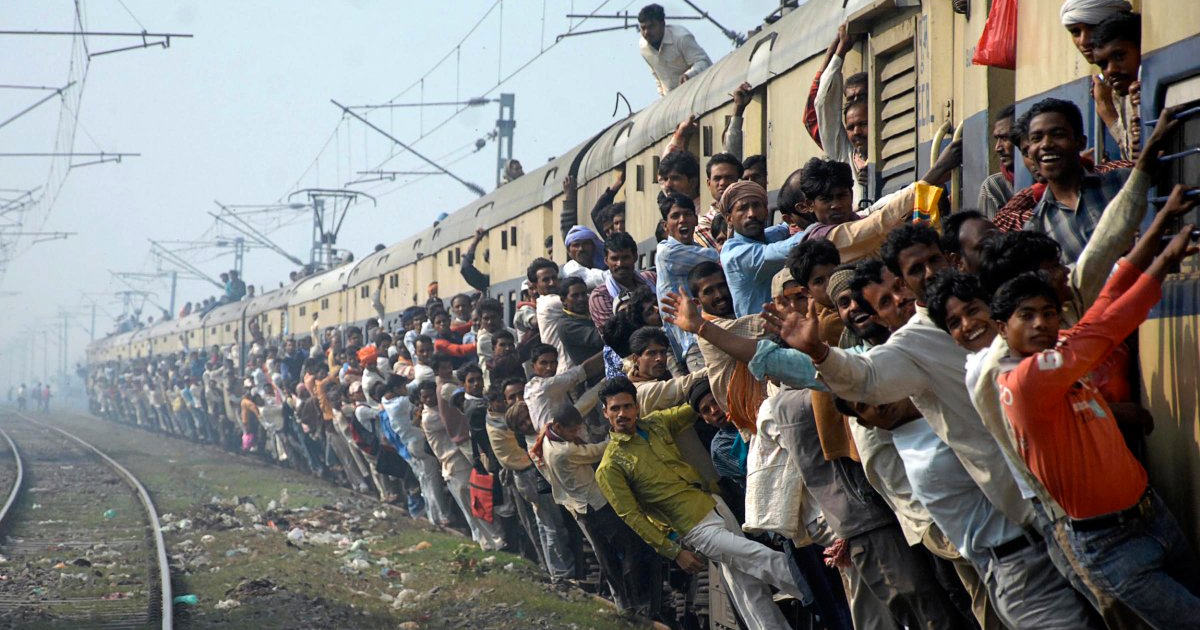
New York Times Misses Story: India Competes for World’s Biggest Loser
New York Times headline writers and reporter Chris Buckley have kindly provided this week’s textbook example of subtle word choices that keep the quest for population growth alive. This does us all a disservice, as we’ve outgrown the planet and a growing population is the LAST thing we need. Here’s the headline:
Expert Doubts China’s Population Number, Saying India May be No. 1
The Telegraph India headline writers also provided an example, over the same story, with:
“King” of population and “No. 1” both imply that India may be winning a competition. Problem is, being the most populous nation on an overpopulated planet should not be cause for celebration. Sure, these headlines might be defended as not inherently judging biggest population to be wisest. But the notion is there, hidden between the lines. So these headlines are sentenced to the Wall of Shame.
Let’s look at the language of the report itself:
“Chinese people cheering on their country’s ascent sometimes comfort themselves with the idea that Asia’s other behemoth, India, is years from surpassing China’s population and decades from emerging as a potential economic peer.”
It strikes me as more than a little insane to think India might actually want to compete with China by adding to its population. We’ve all seen the iconic photos of people hanging off the sides of India’s trains – like the Reuters photo above I’ve chosen to illustrate this post, from this Business Insider story:
These Photos of India’s Overcrowded Railways will Make You Grateful for Your Commute
One could assume there are some people cheering a bigger population and some not. The language itself doesn’t seem to put the reporter’s stamp of approval on population growth or being the biggest. However, by omitting all mention of people lamenting being the biggest, the subliminal message is clear: bigger is better. And since there is nothing in the report suggesting an alternate perspective, and nothing acknowledging the downsides of being most populous, it’s pretty clear there’s an underlying assumption that more is better, and that this notion is not up for debate or reconsideration.
Being a pre-analytical assumption, the more-is-better myth gets a little boost from the story. Between the lines: “of course bigger is better; everyone knows that; there is universal agreement on that; no need to even raise the question.”
One more character in this play deserves some space on the Wall of Shame. The subject of the story, Yi Fuxiang, a Chinese scientist based in Wisconsin is concerned about China potentially being knocked out of first place (in what WE know is actually a contest to be the world’s biggest loser).
“China’s birth rate will determine the size of the workforce sustaining its economy, and the data indicated that stagnation could occur in the coming decades, he said.”
Yes, those who can’t see the forest for the trees are concerned these days about dropping fertility rates. They believe their own nation must have a constantly growing population in order to have economic growth. They want an ever-growing workforce, as well as swelling numbers of “consumers,” to buy what that workforce makes. All so that aggregate GDP keeps growing.
The good news is that GDP is not a measure of success, progress, meaningful lives, needs met, or happiness. The bad news? Today our society remains stuck, trying to do the wrong things, propping up an archaic, destructive, growth-seeking system that’s driving our civilization off a cliff. That is largely thanks to statements like the above – from economists, policymakers and growth profiteers. And thanks to news coverage that doesn’t question it, by reporters who’ve been programmed from birth with a prosperity-from-growth perspective.
This news story reports on several experts questioning Fuxiang’s bold, unsubstantiated claim that India has surpassed China in population size. But there is no expert here questioning the wisdom of wanting to be the biggest. The unspoken, unexamined assumption is that biggest is best. That makes this story biased.
Chris Buckley dutifully reports what Fuxiang is claiming, and doesn’t openly editorialize about how good it is to be the most populous nation or the biggest. But the absence of any questioning of Fuxiang’s dangerous population competition keeps this story from rising to the level of accurate, objective reporting on this subject. At the very least, it is woefully incomplete. I point this out not to chastise Buckley and the headline writers, but to encourage them to recognize their bias and work to overcome it. Otherwise their reporting becomes a character in our play, alongside the economists, policymakers and growth profiteers, ALL pushing us off the cliff.
Tags: economic development, economic growth, gdp, gdp growth, limits to growth, overpopulation, overshoot, population growth
Trackback from your site.